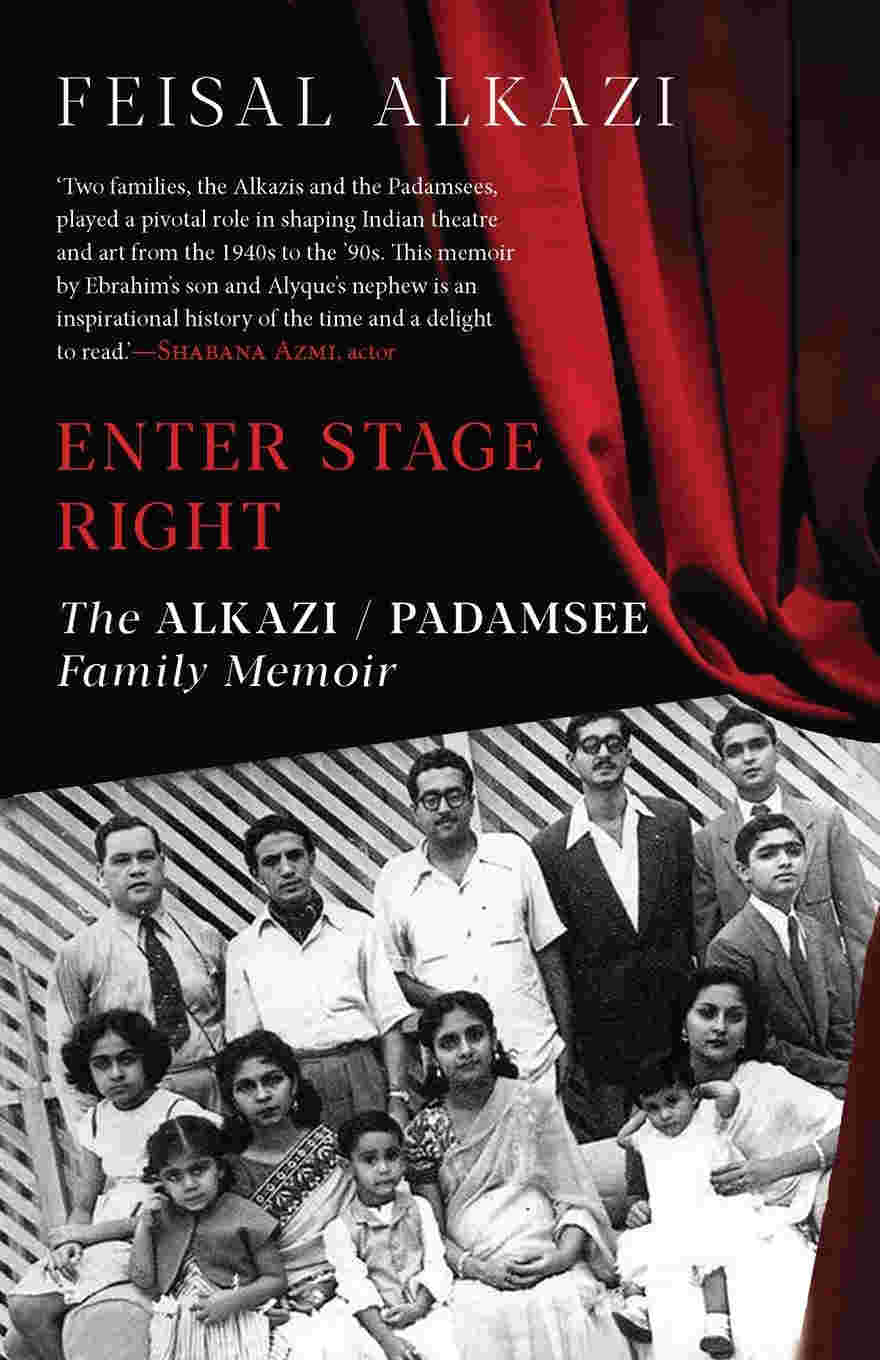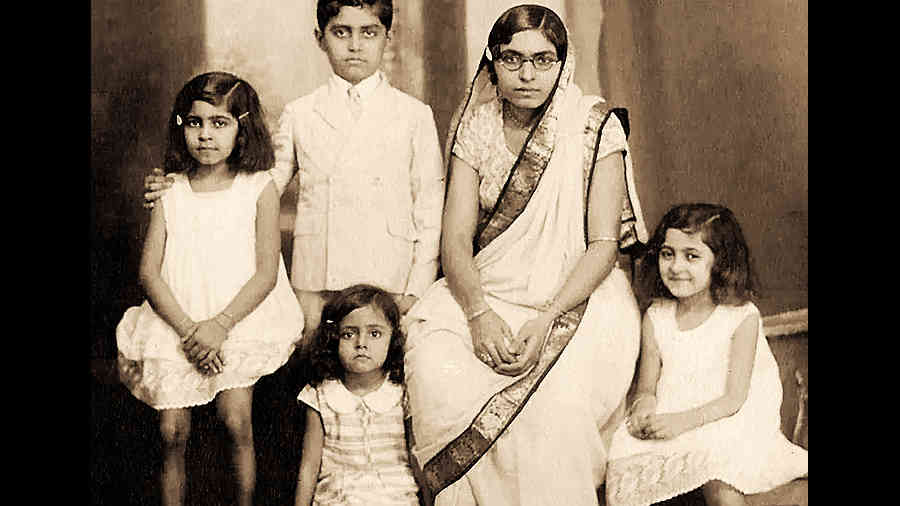Book: Enter Stage Right: The Alkazi/Padamsee Family Memoir
Author: Feisal Alkazi
Publisher: Speaking Tiger
Price: Rs 699
Home is elusive, home is a constant, home is forgiving, home grows, breaks and expands. Feisal Alkazi’s Enter Stage Right is an unremitting search for a sense of home in arts and in people through decades of a magnanimous history of two families, of a fragile nation and of pulsating cities. In one of the chapters he writes, “M.F. Hussain’s ‘Blue Nude’ hangs tranquilly on the wall at Vithal Court, light years away from the Victorian aesthetic of my grandmother’s drawing room, or the austere interiors of Bala’s house where a single lit agarbatti suffuses the house with the heady scent of jasmine flowers. All of this and more is ‘home’ for me.” Alkazi reflects on the stormy years in India, from 1940s to the present, with the brazen honesty of being an ‘insider’ in two prominent families — the Alkazis and the Padamsees.
A personal memoir often nudges me to think whether I am being led into private rooms without a passage. On the contrary, this book — it starts, “English theatre in Bombay was born on my grandmother’s horse-shoe shaped dining table in 1943” — opens a window into understanding how a new ‘Indian’ sensibility was forged and fostered by a group of artists and intellectuals during those momentous years. The son of Roshen Padamsee and Ebrahim Alkazi, Feisal revisits the past through the power and slippages of memory to elucidate how subtle and vigorous dialogue between cultures impacts history and shapes the present. This compelling narrative unfolds a landscape textured by both contemporary and historical concerns of arts practice embedded in the deeply personal and the broader social palimpsests of experiences.

Enter Stage Right: The Alkazi/Padamsee Family Memoir By Feisal Alkazi, Speaking Tiger, Rs 699 Amazon
The beginning of a legacy — cultural, artistic and familial — hinged upon an indomitable woman, Feisal’s maternal grandmother, Kulsumbai. Born in a Khoja family and married into an affluent Padamsee family, Kulsumbai made sure that all her children received English education from abroad. This opened the floodgates of cultural influences which triggered a frisson of excitement around making a new kind of theatre in the family. The author seamlessly sutures personal stories of his family with that of notable innovations in theatre and art movements in India. The thick tapestry interweaves the personal with the artistic in a way that each thread colours the other. For instance, while recalling the genius of Sultan, Kulsumbai’s eldest son, the author describes the poignancy of his 1943 adaptation of Oscar Wilde’s Salome, introducing the Wildean concept of ‘total theatre’, or how his re-interpretations of Shakespeare’s plays received knee-jerk reactions in colonial India. The criss-crossing of lives and cartographies of change rolls out a critical narrative of the evolution of theatre in India across time. While talking about Ebrahim Alkazi’s vast contribution to theatre, Feisal mentions his work on six powerful women characters from dramatic literature, who revolt in their own ways for self-expression. In the narration, he allows the sensitivity of a son to tell the story of a father who negotiated his inner conflicts through a meaningful engagement with theatre.
Feisal Alkazi’s narrative celebrates the beauty of compassion, love and artistic taste that his mother, Roshen Padamsee, carefully nurtured throughout her life. About his mother, he writes, “she was the ultimate ‘rasik’”. Alkazi’s narrative is draped in the smells, sounds, seasons and songs of people of the cities where he lives and works. During these disheartening times, Enter Stage Right offered me a home in the deep poetry of human relationships and in the sublime energy of art.











